Though often a common stereotype, there is sadly a link between those who identify as part of the LGBTQ+ community and drug use, abuse and addiction.
This is often thought to be as a result of the pressures, stress and social adversities that these individuals may experience – often at a higher rate than those who do not identify as a part of this community – though this webpage aims to explore more of these reasons later in the article.
This particular group of individuals is often stereotyped to have high levels of addiction to a variety of substances due to lifestyle, social interactions and other factors, but this is not always the case.
Many people develop addictions, no matter who they are, where they come from, or how they identify, so it is important that specific groups of people are not assumed to have certain characteristics or qualities.
This article aims to explore these issues further, as well as stressing the dangers of substance use, how best to seek help for addictions, and how to go about accessing this support.
Learn more about how gay pride can support addiction recovery by giving our expert team a call on 0800 140 4690

As mentioned above, there are many reasons why someone may turn to addiction, regardless of whether or not they are part of the LGBTQ+ community or not.
Though every individual case will have a unique set of circumstances are reasons for their addiction, there are some that occur more commonly than others.
The following points highlight some of these key reasons:
Discover your addiction recovery options by calling us for free on 0800 140 4690
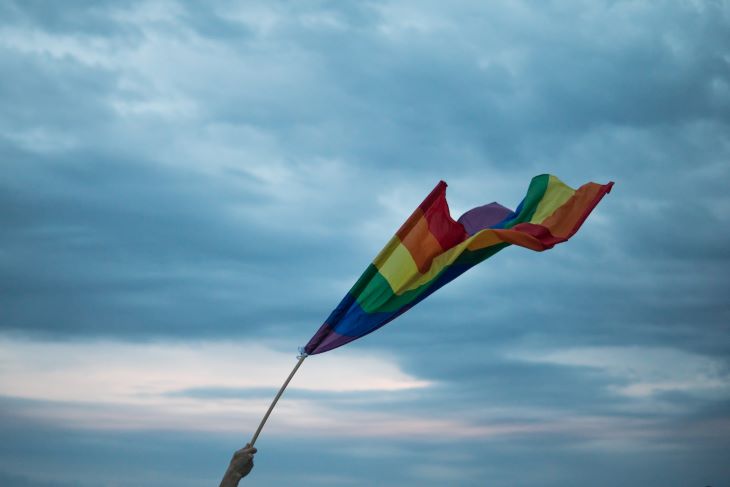
The reasons mentioned above are not extensive, but it can be seen how these reasons may be especially effective on individuals within the LGBTQ+ community.
For example, there may be additional social pressures at events run by the LGBTQ+ community due to a combination of the factors above.
Those running the event may be older and more experienced than others in attendance, having already been addicted to substances for a long period in order to overcome the discrimination and hate that they may have been subject to over their lifetime.
Historically, the hatred and misunderstanding of the LGBTQ+ community were far greater than now (relatively), meaning that these individuals may have a longer history of turning to substance use as a coping mechanism, as well as being part of large drug-taking trends of the 60s and 70s, for example.
Though this is a unique example, it highlights just some of the reasons and additional pressures that these individuals may be subject to, leading to greater adversity and difficulties that these individuals face when it comes to addiction.
In 2011, one study found that drug use was more common among individuals residing in gay neighbourhoods, [1] (neighbourhoods that have a higher proportion of gay individuals living within them) showing the impact that these communities may have within themselves.
Looking for guidance on drug & alcohol addiction recovery? Speak to our experts today on 0800 140 4690

This webpage focuses on substance addictions, but it is also important to recognise behavioural addictions (compulsive shopping, food addictions and other eating disorders, sex addiction, gambling addiction, etc.) for the very legitimate threat that they pose.
Though addictions to substances vary massively from individual to individual, it is important to remember that some substances are more addictive than others in some circumstances.
For example, physically addictive substances are those that alter the body’s chemistry, making vital processes dependent on the substance to function correctly.
This includes substances such as heroin and alcohol – both of which require a lengthy withdrawal process and can cause serious harm to the individual if approached incorrectly or without suitable support.
However, non-physically addictive substances such as cocaine and cannabis can be just as addictive to some individuals, creating serious issues in terms of the individual’s mental health and well-being.
These substances also require suitable withdrawal procedures, and their lack of a ‘physically dependent’ label should make them no less serious when it comes to recovery.
Some studies suggest, for example, that the withdrawal period is not fully complete until abstinence has been maintained for a period of 6 to 9 months minimum, [2] regardless of the substance type and its physical dependence factors.
Find your way towards drug or alcohol addiction recovery by giving our team a call on 0800 140 4690

Every individual will have different reactions, effects, and repercussions when it comes to substance use, misuse, and abuse.
This will all be due to their individual differences, as well as the specific type of substance, the individual’s addiction history and the regularity and quantity of their consumption habits.
This means that it can be difficult to ascertain whether or not someone may have an addiction.
However, there are some common factors that an individual can look out for when determining whether or not they or someone they know may be struggling with addiction.
These are listed below:
The following subheadings outline some of these factors in regard to the individual’s physical and mental health – both of which should be a key focus when seeking support for the individual.
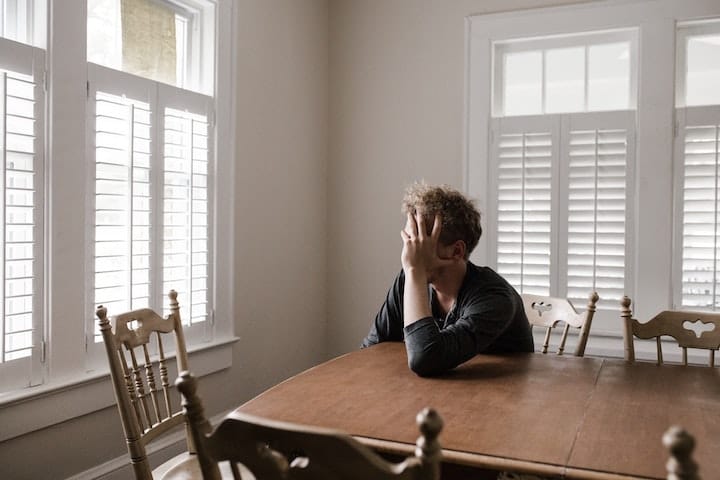
Depending on the substance(s) that the individual is addicted to, there are many physical changes that an individual may begin to experience and/or display.
This is a big distinction to make, as many individuals will often try to hide their condition, either as a result of being in denial or as a result of being embarrassed or ashamed of their situation. Sometimes it can be as a result of both of these factors.
In some cases, the individual may begin to show a difference in colour of their skin.
Again, depending on the substance, an individual may become paler in complexion, or even yellowing in cases of organ damage.
In other cases, an individual may become increasingly flushed, often looking like severe blushing or windburn.
An individual may also begin to rapidly lose or gain weight.
Dependent on the substance they are addicted to, an individual may become turned off by their food, opting to consume the substance further rather than providing their body with the nutrients it needs to maintain a healthy weight.
Weight loss can also be caused as a direct result of some substances.

Where physical health effects can be more obvious to an external party, mental health effects are often not as easily observable until they become detrimental to the individual themselves.
Mental health impacts of addiction may include the lack of interest in activities that the individual was previously engaged in or excited about.
They may also include serious mood swings, often causing the individual to feel abnormally depressed, angry, aggressive, or numb.
This can seriously impact how they interact with other individuals, as well as how they choose to spend their day i.e., staying in bed all day as opposed to going out and spending time with friends and/or family.
Though many individuals may choose to focus on the physical impacts of addiction, the mental health impacts can be far more long-term, especially if they are not picked up on within the early stages of rehabilitation.
Every individual going through rehabilitation should ensure that their mental health needs are met just as much as their physical health is cared for.
Think you or your loved one might be suffering from alcohol or drug addiction? Speak to our staff for free on 0800 140 4690

Addiction is a unique disorder for many reasons, making the recovery process one of the most complex of any mental health disorder.
This is why it is vital that individuals seek the most appropriate and suitable care for them.
This includes the idea of a dual diagnosis approach.
This is an approach that focuses on both mental and physical health issues, as well as an ability to address multiple issues within both of these categories.
This is because addiction is a disorder that is known to co-occur with other mental health issues.
Common co-occurring mental health issues include anxiety, depression, bipolar disorder and schizophrenia, though there are many other disorders that an individual may struggle with at the same time as addiction.
All recovery and rehabilitation programmes accessed through Rehab 4 Addiction will follow this approach, meaning that individuals do not have to worry about this when seeking help through our services.
Ensure that your time at a drug and alcohol rehab centre includes effective mental health support by contacting us on 0800 140 4690

Before an individual enters rehabilitative care, it is vital that they understand the processes that they are likely to experience, as well as having an idea of what they are looking for, both in terms of personal preference and for what is best for them and their specific needs.
Though this can seem daunting at the start of the process, there are some decisions that individuals can make early on within the selection process.
For example, the choice between inpatient and outpatient recovery options is one of the first choices that an individual will be faced with.
This is because this will dictate where the individual will receive the majority of their care – either within a dedicated centre (inpatient care) or while continuing to reside at home/another location while partaking in care part-time (outpatient care).
The differences are further described in the following subheadings.

This is the most commonly thought-of option for drug rehabilitation and is generally the most suggested option for individuals who have struggled with drug addiction and rehabilitation in the past.
Through inpatient care, individuals will reside in a dedicated and often specialised centre for recovery and for the majority of their treatment programme.
This centre is chosen at the beginning of the individual’s care and will always be a choice that is suitable for them and their needs.
Individuals will reside in the centre full-time, taking part in different programmes and treatments that are set up as the main part of daily life in rehab.
Although visits are usually allowed, these will occur at specific times to ensure they do not disrupt the recovery process but instead encourage as effective a
This can be anywhere from a 7-day detox to a full 30-day stay, though this is determined by the individual and their needs before any rehabilitation is started.
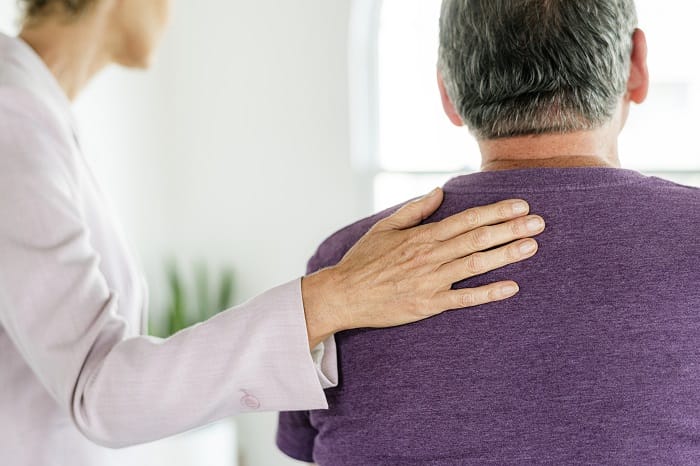
Alternatively, an individual may opt for, or it may be suggested, that they attend outpatient rehabilitation care.
This is where the individual will take part in rehabilitation treatments and programmes, but not as part of their daily schedule.
During outpatient care, an individual may choose to stay living at home, or move somewhere more local to their care programme.
They may also choose to move away from triggering factors including people, environments, and situations in which they may have developed or worsened their addiction.
Though most of the same treatment programmes are available through both inpatient and outpatient rehabilitation options, the differences lie in the severity of the individual’s addiction, the environment in which they may currently be residing in, and the specificities of their addiction and its duration.
Not sure if inpatient or outpatient addiction treatment is right for you? Talk ti over with our experts today on 0800 140 4690

No matter who the individual is, how they became addicted, or the specific factors and effects that come with their addiction, every individual is deserving of care and rehabilitation.
Rehab 4 Addiction will always suggest the following three stages of care, though there are no exact timelines or durations of each of these three stages, and all individuals should progress through them at their own pace – as safely and comfortably as possible.
The following subheadings outline these stages of care:

During detoxification, also known as a ‘detox’, individuals will withdraw from the substance(s) they are addicted to under suitable care and conditions that are as safe and comfortable for them as possible.
For non-physically addictive substances such as cocaine and cannabis, this process may be relatively easier and shorter term, though this is not always the case.
Non-physically addictive substances still require suitable care and support throughout the detox process, no matter how confident the individual may feel in an independent recovery.
For physically addictive substances such as alcohol and heroin, for example, relatively more care should be taken during this stage, ensuring that individuals receive suitable medical interventions if they are needed.
This process can be life-threatening if an individual does not proceed through this transition in a safe and supported manner. Professional support is always recommended.
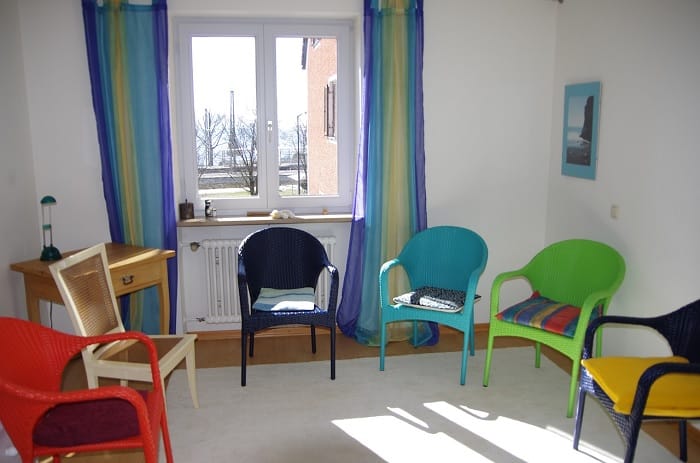
Once an individual has withdrawn from the substance that they are addicted to, they are encouraged to move on to therapies and other treatment programmes along this line.
Where detoxification focuses on the physical health side of treatment, therapy aims to treat the mental health impacts that an individual may have developed as a result of addiction.
Most therapy treatments aim to help the individual identify the root causes of their addiction, helping them to overcome subconscious triggers and cravings, as well as helping them to develop coping strategies for the long-term.
Cognitive Behavioural Therapy (CBT), for example, is one of the most widely recommended forms of treatment for those struggling with addiction as it can be specialised for any individual, partaken in with or without a therapist, and continued long into the future of the individual’s recovery.
Studies show that, when combined with other methods such as relapse prevention planning, motivational interviewing and other forms of both individual and group therapy, CBT is one of the most effective forms of treatment available for individuals in all stages of recovery. [3]

As the final stage of rehabilitation, aftercare can last for as long or as short as each individual requires.
This means that an individual could meet with their aftercare support officer for a few months after leaving rehabilitation, or they could continue different therapies and treatments that they learnt in therapy sessions for years after leaving care.
This is all dependent on the individual and their requirements for care, but is available for any individual who needs it, and for as long as they need it for.
The likely extent of aftercare needed should always be ascertained before an individual begins any specific treatment, though it can be altered and adjusted as their recovery journey progresses.
Discover the nature of addiction recovery for yourself at a professional alcohol & drug rehab clinic – call us on 0800 140 4690
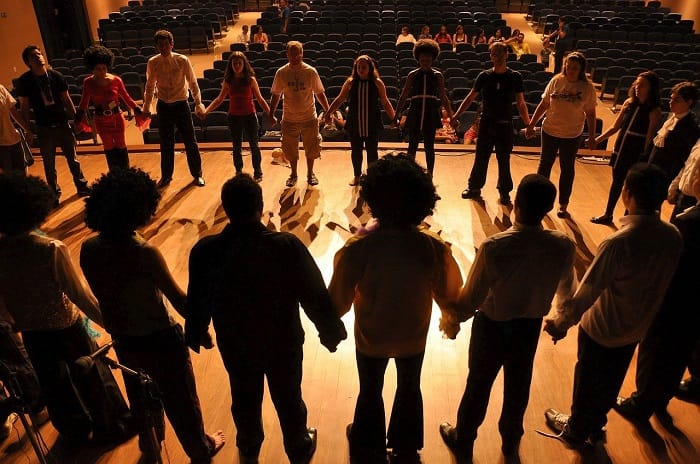
The LGBTQ+ community always support those who need it, no matter what situations or difficulties that may arise.
This means that there are many specialised support groups for individuals within these communities, as well as those who need it most.
Especially when an individual leaves specialised care and treatment, there are many local addiction support groups that aim to support all individuals who need it, whether they are a part of the LGBTQ+ community or not.
Such groups include:
These community groups provide a safe space for individuals to share their experiences with their peers, learn from others, and have a chance to feel part of a strong support network.
These groups can often lead to further friendships, recovery activities and any other support that these individuals may need.
To find groups like these near you, take a look online, research local meetings or contact Rehab 4 Addiction to find specialised groups like these near you or someone you know.
Learn more about how gay pride can support addiction recovery by giving our expert team a call on 0800 140 4690

Rehab 4 Addiction strongly believes in non-discrimination and supports all individuals struggling with addiction, no matter how big or small these issues may appear to the individual and those around them.
Our referral programme matches individuals to the most suitable treatment programme for them and aids them in making vital decisions for their rehabilitation journey.
To find out how we can help you or someone you know, please do not hesitate to contact our addition support line for free on 0800 140 4690 today.
We are here to help you.
[1] https://pubmed.ncbi.nlm.nih.gov/21362613/
[2] https://jamanetwork.com/journals/jamainternalmedicine/article-abstract/548344
[3] https://pubmed.ncbi.nlm.nih.gov/19039449/
[4] https://www.alcoholics-anonymous.org.uk/
[6] https://www.cocaineanonymous.org.uk/
[7] https://smartrecovery.org.uk/about-smart-recovery-meetings/